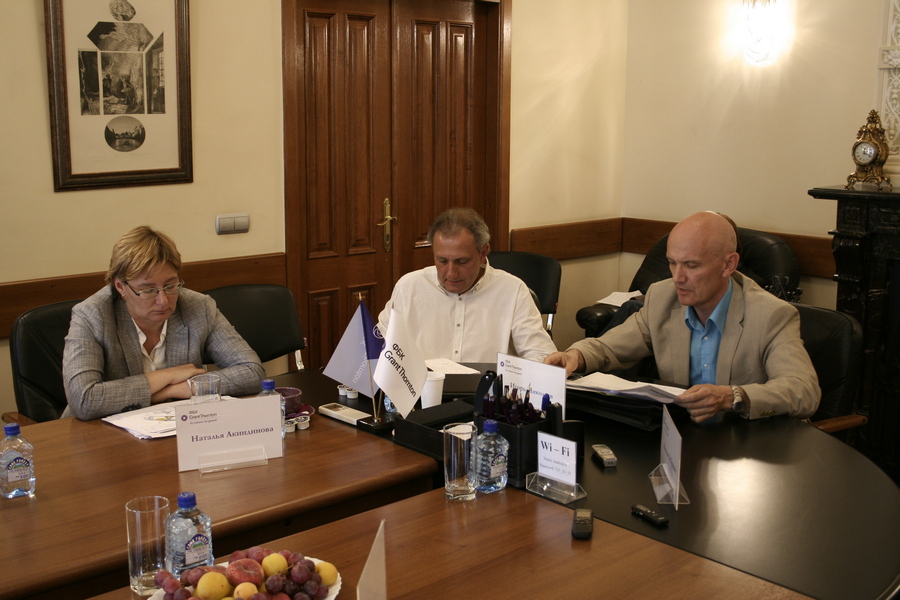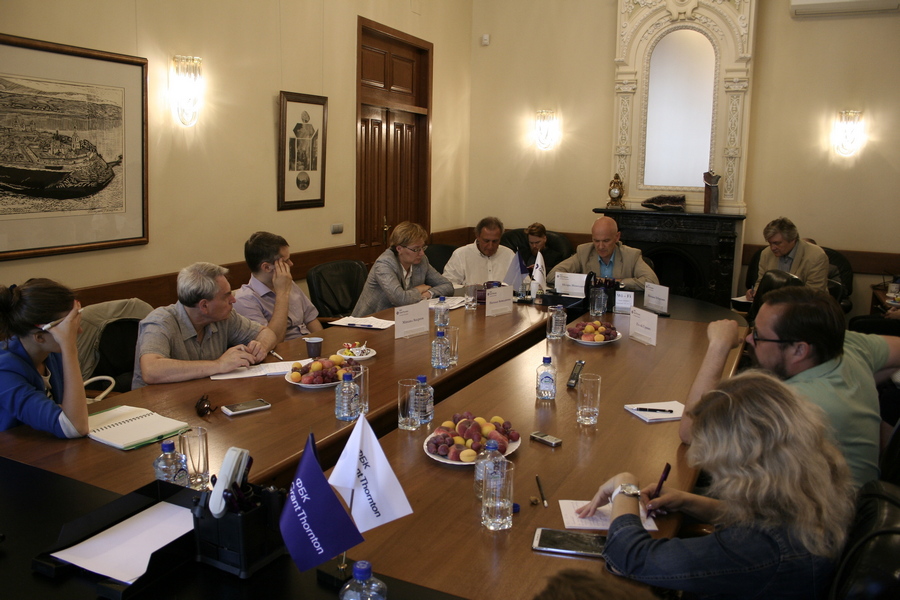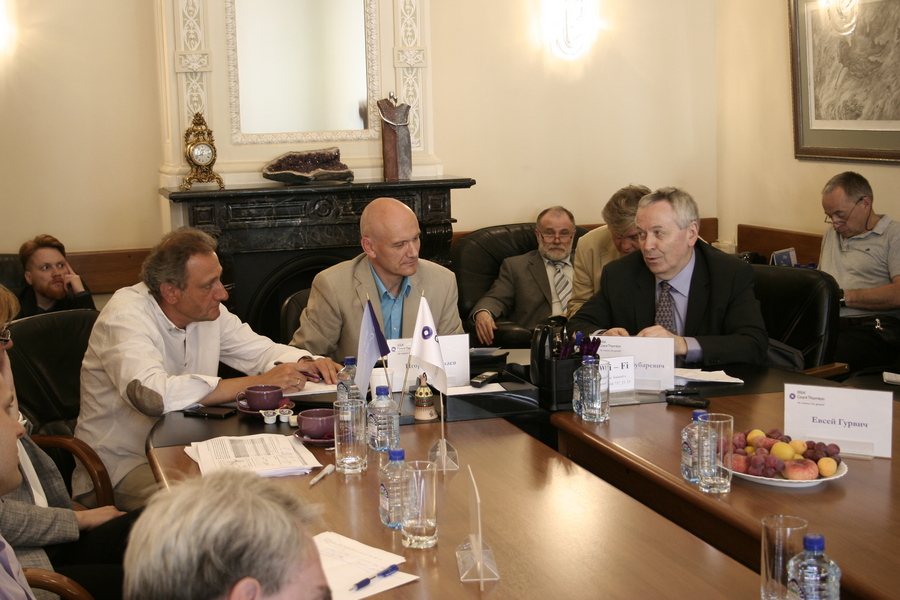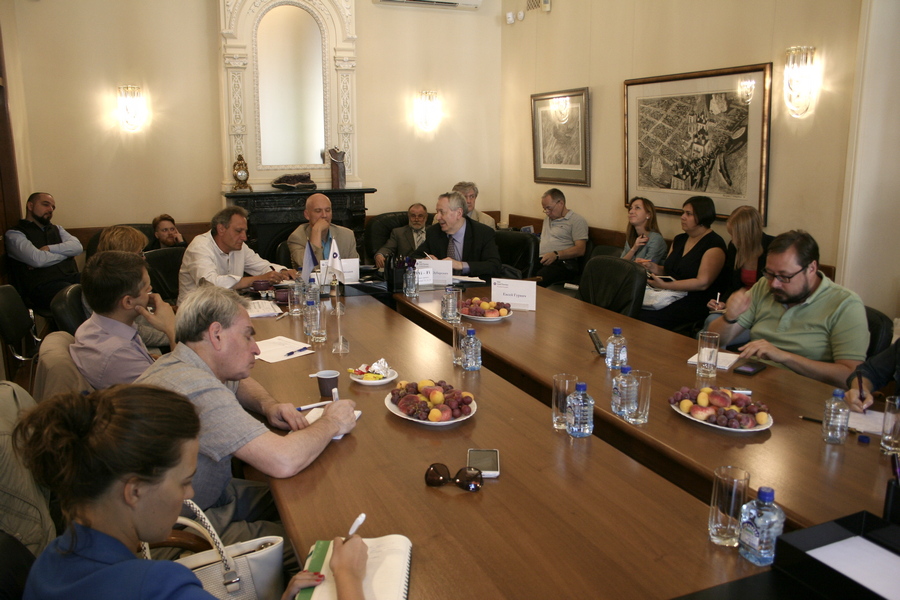FBK Economic Club experts on the relationship between economic growth and real household income
Rosstat statistics suggests economic upturn, but what brought about the current economic growth in Russia? How this growth tells on real household income? Is this positive growth trend driven by structural changes in the national economy? These and a host of other matters were in the focus of discussion at a meeting of the FBK Economic Club.
Rosstat (Federal State Statistics Service) survey findings suggest that the economy in 1Q 2017 has grown by 0.5 per cent, while the estimates suggest that the economy has grown in April and May by 1.4 and 1.7 per cent, respectively. Meanwhile, as explained by Igor Nikolayev, FBK Partner, Director of Institute for Strategic Analysis, real household income has been diminishing for the fourth straight year. As recently as in 2016, real household earnings shrank by 5.9 per cent, while in January-May 2017 they dropped by 1.8 per cent. Besides, the structure of earnings is changing. Social benefits have reached in 2016 historic highs since a Soviet era making 19.2 per cent, while their share was 11.6 per cent in 2007. However, increased share of social payments is not necessarily translated into increased earnings of the general public. Revenues generated by businesses have hit all-time lows, as few as 7.8 per cent, whereas they were the highest ever in 1993.
“Indeed, household income is going to depend more on government payments than the earner’s business activities. This very well explains the situation where household earnings growth rate is inconsistent with economic growth rate, Igor Nikolayev says. And where economic growth is not translated into improved living standards, this is not growth, this is lame growth.”

While on this subject, Natalya Akindinova, Director of the HSE’s Center of Development Institute, noted that the growth we are seeing today cannot be characterised as sustainable economic growth. Current statistics is quite difficult to evaluate because Rosstat has adopted a new classification framework, while economic processes are of a divergent nature. We are seeing positive trends in manufacturing sectors, whereas nonmanufacturing activities, specifically privately supplied and paid services, are demonstrating negative performance. On average, the economy is balancing around a zero level.
“There are, therefore, no grounds for increased household earnings yet, because the economy of this country has always been and continues to be a commodity-based economy and its growth is much dependent on crude oil prices, while household income depends on inflation rates that are not directly dependent on oil prices,” Natalya Akindinova noted.

Mikhail Andreyev, Senior fellow of the Structural Research Laboratory of RANEPA provided his commentaries on social and economic forecasts published by the Ministry of Economic Development. The Ministry’s hopes are that the country’s GDP will have grown by some 2 per cent p.a., the inflation will be kept at 4 per cent, all of this being in the face of the Russian Rouble weakening against the US dollar to 70 roubles.

Taking the floor in turn, Evsey Gurvich, the Head of Economic Expert Group, started by offering an optimistic view on the current economic situation. In his opinion, the economy will no longer be falling, the economic downturn has come to an end, and the price of the recession could have been higher than we expected. The economy is growing in the face of increased oil price by 20 per cent. However, the bad news is that despite evident signs of growth, there haven’t been any signs of a new growth model since a Soviet era. The growth is still dependent on oil prices and is translated into the expanded production capacity without improved production efficiency, without improved quality of goods. Even this model offers a room for improvement for Russia.

“One of the specific features of the Russian economy is a weak reaction to price signals,” Evsey Gurvich explained, “Countries with a more flexible economy may even gain from depreciation as the exports are soaring. The Russian economy accommodates crisis in a passive fashion by decreasing domestic demand, decreasing import to support the balance of payments. The economy gains nothing from increasing exports. For instance, when the exchange rate weakens, say, by 10 per cent in South Korea, the country’s current transaction balance decreases by 11 per cent, whereas in Russia such balance decreases as little as 1.5 per cent.”
FBK Economic Club is a unique discussion forum which facilitates expert insights exchange between mass media and renowned economists, politicians and government officials. The Club’s meetings also feature presentation of FBK research papers.
| Recommend | |
|
| |
